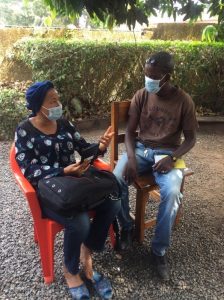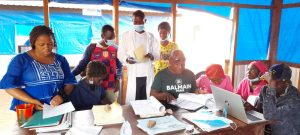Improving Community Health and Immunization Outcomes in Guinea through Integrated Health Systems Strengthening
The Challenge
Guinea’s National Community Health Policy represents a critical response to a constellation of public health challenges characterized by recurring Ebola outbreaks and the persistent threat of vaccine-preventable diseases. This is set against a backdrop where the COVID-19 pandemic has catalyzed a regression in immunization rates, exacerbating health disparities. The Guinean context underscores a broader trend of declining vaccination coverage globally, compounded by systemic financial limitations and integration shortfalls within health service delivery systems.
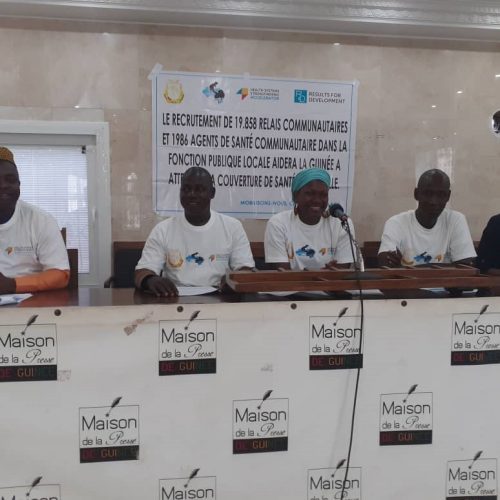
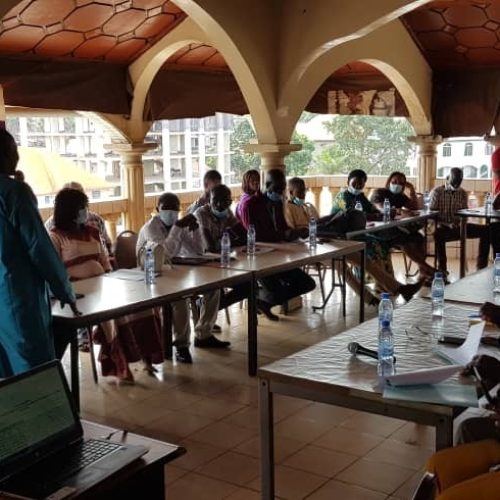
The Opportunity
Guinea has proactively initiated the Politique National de Santé Communautaire (PNSC) in 2018, targeting enhanced community-level health outcomes. This strategy is multifaceted, encompassing prevention, treatment, and referral services across a spectrum of health areas, emphasizing operationalizing community health workers (CHWs). Its centerpiece is the recruitment, training, and salaried payment of Community Mobilizers, Relais Communautaire (RECO), Community Health Workers, or Agent Santé Communautaire (ASC).
The strategy’s implementation necessitates systemic adjustments, including enhanced leadership and governance within the Ministry of Health (MOH), improved cross-sectoral coordination, resource mobilization, and the sustained viability of health interventions. While some regional implementations of the PNSC have shown promise, systemic impediments such as coordination deficits, funding instability, and limited learning infrastructures persist.
Our Work
The Accelerator’s intervention in Guinea targets the augmentation of community health system efficacy. Collaborating with the Comité Jeunes Mon avenir d’Abord (My Future First Youth Committee or CJMAD), the Accelerator’s approach is underpinned by three strategic pillars: leadership and governance enhancement, financial sustainability, and evidence-based decision-making. This involves strengthening the capacity of the DSNCMT within the MOH to implement the PNSC, boosting the engagement of CHWs in immunization drives, and endorsing systemic financial support for community health efforts.
A pivotal component of the Accelerator’s strategy involves advocacy that has materialized in legislative success, mandating government support for CHW remuneration. Furthermore, the initiative leverages adaptive learning models to refine programmatic decisions and outcomes based on empirical data.
In alignment with Gavi’s 5.0 strategy and WHO’s Immunization Agenda 2030, the Accelerator is orchestrating efforts to bolster routine immunization systems, particularly focusing on zero-dose and under-immunized children. This entails co-creating innovative solutions to construct resilient primary healthcare systems, fostering a more integrative nexus between community health initiatives and routine immunization services. Through these concerted efforts, the Accelerator contributes to a scalable model of community health systems strengthening, designed to meet the multifaceted needs of public health in Guinea and beyond.
Local Partners
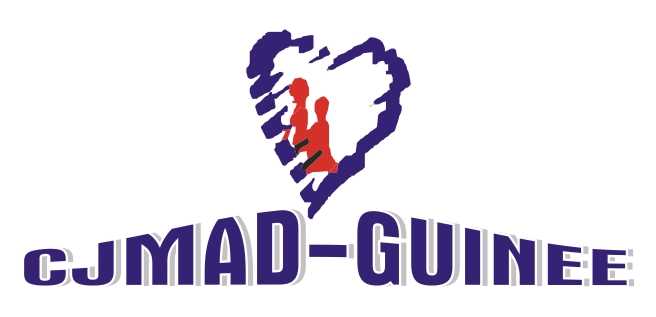
News & Resources
Guinea Implementation Research Protocol Published in PLOS ONE
Guinea Implementation Research Protocol Published in PLOS ONE In this...
Read MoreImplementation Research Helps Guinea Assess Gaps and Opportunities in the National Community Health Strategy
Authors: Alexandre Delamou, Fassou Mathias Grovogui, Rachel Gates, Lior Miller,...
Read MoreIntegrated Health Systems Strengthening Support Aims to Improve Community Health Outcomes in West Africa
Existing efforts to improve community health outcomes in West Africa...
Read More